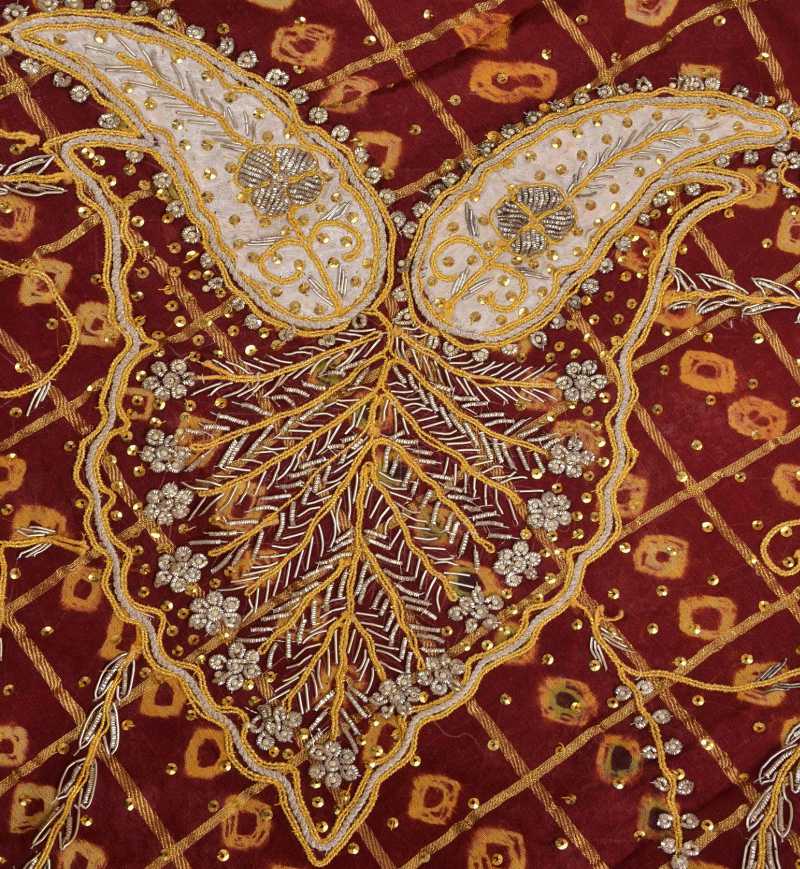===
0318,
1
===

=== |
 |
fishaar : 'Squeezing, pressing (with the hand); compression, constriction; —a scattering; diffusion'. (Platts p.781)
rag : 'An artery, a vein; tendon, nerve, sinew, fibre'. (Platts p.598)
FWP:
SETS
MOTIFS == CHAK-E GAREBAN
NAMES
TERMS == FLOWINGNESSFor an explanation of the 'collar', which is of course the vertical neck-opening of a kurta, see G{17,9}.
Each long, thin thread of the collar, as it's twisted and wrung, gives off water the way a long, thin 'artery' or 'vein' of a cloud would be imagined to give off water-- that is, not just in a limited, external way, from drops clinging to the outside, but in an ongoing, internally-generated flow that wouldn't stop until the cloud had rained itself out. The suggestion could almost be that the collar itself is half-dead by the time the flow stops and the process comes to a halt.